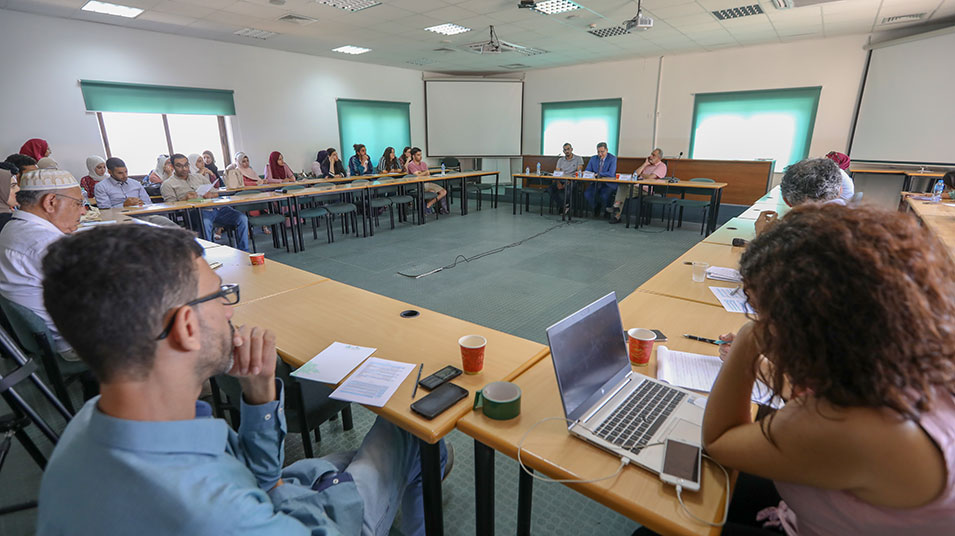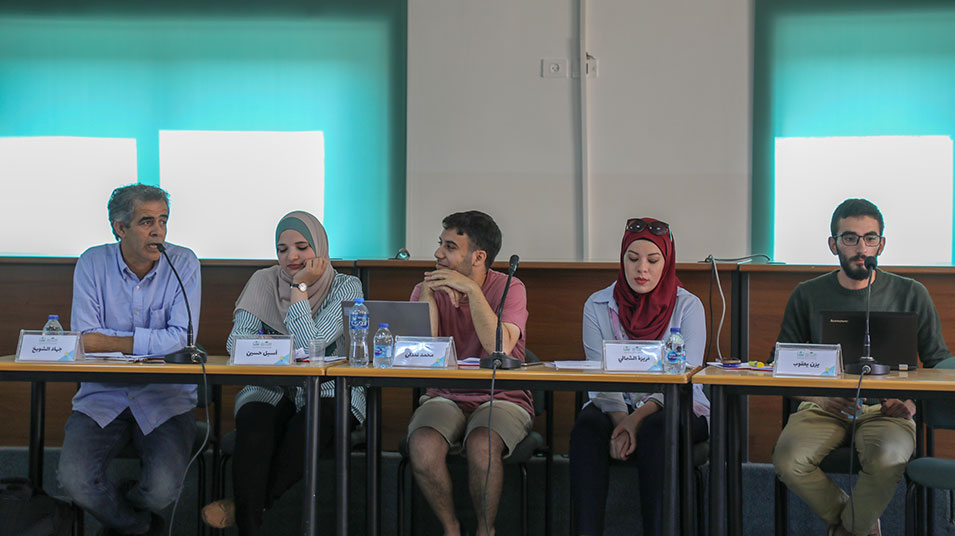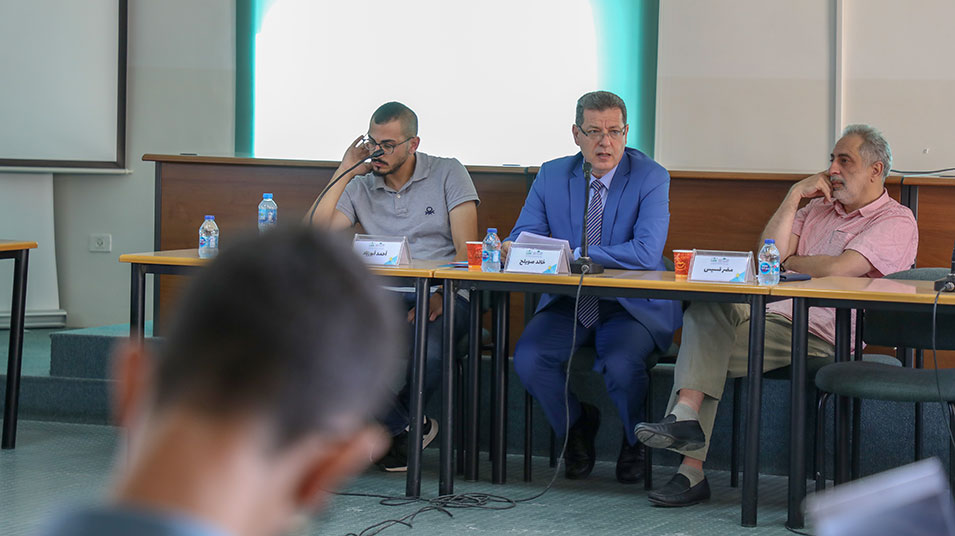Students delve into role of higher education in Palestine in fifth annual Idea Factory conference
Students, educators, and representatives of civil-society institutions discussed the characteristics and role of education in Palestine and debated the extent to which youth can affect changes in educational institutions in the fifth Idea Factory student conference, entitled “Made at Birzeit−Organic Thought,” on Saturday, September 14, 2019.
The Idea Factory, an annual project and initiative founded by the university’s students, is hosted by the Muwatin Institute for Democracy and Human Rights.
In his opening remarks, Khalid Swaileh, the university’s vice president for academic affairs, stressed the importance and centrality of knowledge production for students. He mentioned that the “Made at Birzeit−Organic Thought” conference is part and parcel of Birzeit University’s mission to shape students into the leaders of tomorrow.
“This conference is a model that carries with it a number of features of our university that we seek to reinforce,” he added, asserting that “these features boldly address current issues and touch the concerns faced by Palestinian society as a result of the colonial situation.”
Mudar Kassis, director of the Muwatin Institute for Democracy and Human Rights, explained that the goal of the conference is to encourage students to independently produce knowledge that is based on a new understanding of education. He called on students to put their thoughts into writing, as this can develop their ideas and open them up to increased scientific rigor.
Ahmad Abu Ziad, a master’s student at Birzeit University and the Idea Factory’s coordinator, said that the group decided to make education and higher education the theme of this year’s conference because they wanted to discuss and understand their own position and function within the Palestinian educational system; they wished to examine the extent to which they are able to participate in the setting of the policies and the future direction of the educational institutions of which they constitute the largest part.
In the conference’s first session, chaired by Jehad Alshwaikh and entitled “Liberation and Hegemony in the Education Process,” four papers were presented. Aseel Hassan explored the realities of vocational education in Palestine and scrutinized the relationship between higher education and the job market; Yazan Ya’koub discussed the experiences of teachers as students and how this experience affected their concept of teaching and instruction; Mohammad Qa’dan examined how Palestinians living in 1948-occupied areas view their identities and compared her results with an analysis of Edward Said’s ideas on universities and academics; and Fariza Shamali presented a paper on the participatory learning models practiced at Birzeit University’s Faculty of Education.
The second session, chaired by Amal Nazzal and entitled “Patterns of Action in the Education Process,” featured a paper by Yara Abu Hasheesh that shed light on student movements in Palestinian schools; Layan Al Kayed’s presentation focused on Birzeit University’s Leadership and Active Citizenship Program “Masari” and its vision of the skills and values a Palestinian university graduate should possess; Sama Al Taweel discussed the “McDonaldization” of Palestinian educational institutions; and Hiba Ftaiha’s paper analyzed how reading material with orientalist themes is addressed and presented in courses at Palestinian universities.
The third session, a group discussion chaired by Ziad Izzat, shed light on student movements at Birzeit University. Participating in this discussion were the students Raghad Khader, Majida Karajah, and Yaser Al-Zawawi. The session’s main focus was the question whether the various student movements aid or a hinder the education system.









